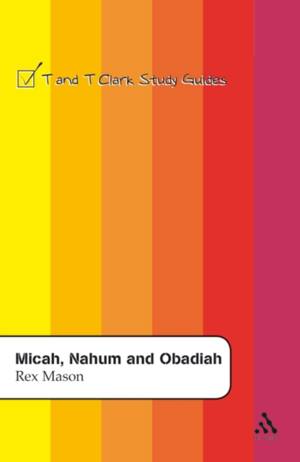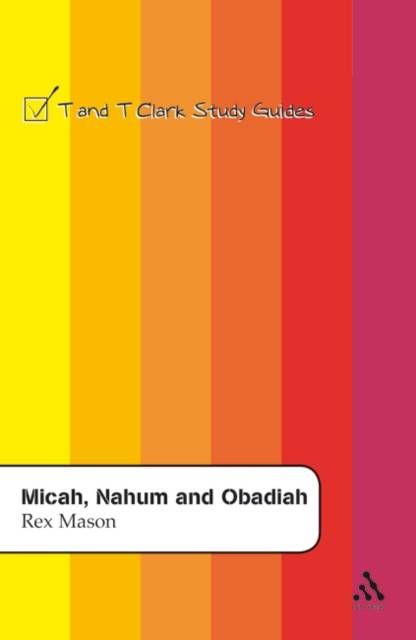
Bedankt voor het vertrouwen het afgelopen jaar! Om jou te bedanken bieden we GRATIS verzending (in België) aan op alles gedurende de hele maand januari.
- Afhalen na 1 uur in een winkel met voorraad
- In januari gratis thuislevering in België
- Ruim aanbod met 7 miljoen producten
Bedankt voor het vertrouwen het afgelopen jaar! Om jou te bedanken bieden we GRATIS verzending (in België) aan op alles gedurende de hele maand januari.
- Afhalen na 1 uur in een winkel met voorraad
- In januari gratis thuislevering in België
- Ruim aanbod met 7 miljoen producten
Zoeken
€ 62,95
+ 125 punten
Omschrijving
Mason here provides a valuable basic orientation to the modern reading of these short and often difficult prophetic books. By carefully surveying and evaluating the historical critical options that have been proposed during the last century, Mason then outlines the message of these books within a post-exilic, canonical context. In the face of differing critical opinion as to what does, and what does not, come from Micah in the book of Micah, the position taken here is that the book has to be read finally as a coherent postexilic tract which re-interprets the prophet's message in the light of the situation after the exile. For Nahum and Obadiah, which have so often received a bad press because of their theology of apparent hate for the foreigner, it is argued that the function the books were designed to serve in the Book of the Twelve must be taken seriously.
Specificaties
Betrokkenen
- Auteur(s):
- Uitgeverij:
Inhoud
- Aantal bladzijden:
- 118
- Taal:
- Engels
- Reeks:
Eigenschappen
- Productcode (EAN):
- 9780567083289
- Verschijningsdatum:
- 16/02/2005
- Uitvoering:
- Paperback
- Formaat:
- Trade paperback (VS)
- Afmetingen:
- 112 mm x 177 mm
- Gewicht:
- 104 g

Alleen bij Standaard Boekhandel
+ 125 punten op je klantenkaart van Standaard Boekhandel
Beoordelingen
We publiceren alleen reviews die voldoen aan de voorwaarden voor reviews. Bekijk onze voorwaarden voor reviews.









